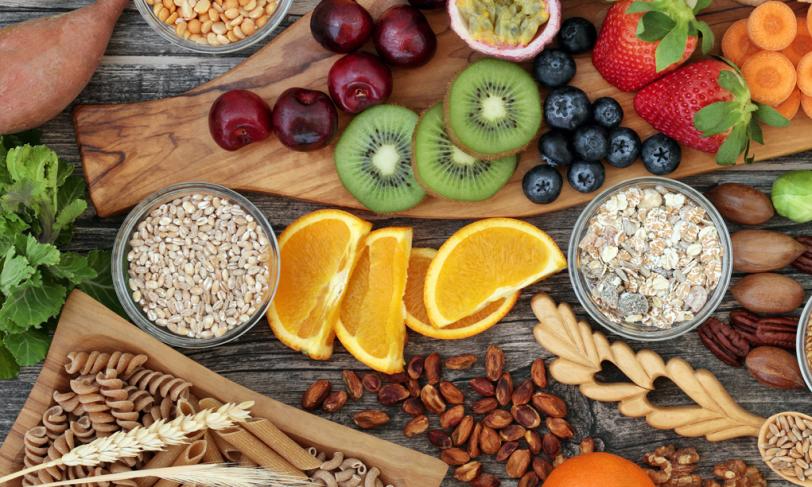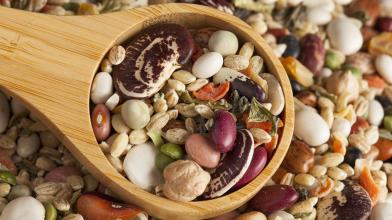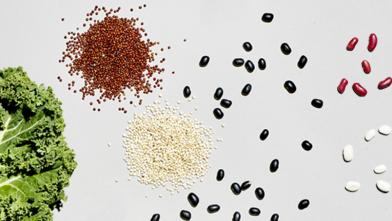When it comes to carbohydrates and diabetes, it’s hard to make sense of all the information out there. Fat was once seen as the enemy, but in recent years, carbohydrates have taken center stage as the villain to healthy eating. But this “bad guy” reputation doesn’t tell the whole story. So, how much carb should a person with diabetes eat?
First, let’s take a step back and think about what all foods are made of. Most of the calories in our food come from three “macronutrients”: carbohydrate, fat, and protein (“macros” refers to the nutrients our body needs in large amounts). Foods also contain “micronutrients” like vitamins and minerals—these are essential for many of our bodies' functions, but we need a much smaller amount of them and they don’t usually provide any calories.
High Carb, Low Carb, No Carb?
Should people with diabetes cut back on carbs? It’s true that foods high in carbohydrate have the biggest impact on blood glucose compared with foods high in protein and fat. Carbohydrates break down into glucose after they are digested, so it makes sense to think that cutting carbs would lead to lower blood glucose levels and better diabetes management. However, glucose is also an important fuel source for your brain. Just like a car needs gas, our brain needs glucose. There’s a lot of debate around what is the ideal mix of carbohydrate, protein, and fat needed by people with diabetes, but we don’t have any evidence that one specific proportion will be right for everyone.
Glucose is also an important fuel source for your brain—just like a car needs gas, our brain needs glucose
What kind of Carb Is Just as Important as How Much
There are a lot of carbohydrate food options, and this is where it gets tricky, because some carbs are better for you than others. “Refined” carbs refer to foods made with white flour and sugar, such as pretzels, cookies, cakes, and white breads. These foods raise your blood glucose levels quickly, and do not provide much nutritional value. On the other hand, carbs found in vegetables, beans, lentils, fruit, and whole grains break down slower and are packed with fiber, vitamins, and minerals that provide many health benefits.
The timing and amount of carbs you eat are also important. Eating a lot of carbs in one meal, even if they are high quality carbs, can cause a spike in your blood sugar. Try to spread them across your meals and snacks throughout the day based on your personal carb goal.
And remember, there are many other factors that can affect your blood glucose. Things like changes in activity or sleep, timing and dose of diabetes medicine, and stress can all have an impact on your blood glucose. It’s not always just about food! (You can go here to learn more about other factors that affect your blood glucose)
What Works for You
When deciding how much carb is best for you, start by looking at what you are eating on a regular basis. How many grams of carbohydrate are you eating in each of your meals and snacks? If you are checking your blood sugar, are there certain times of day that your blood sugar is always higher? If so, then that may be the best place to start making small changes. As you continue to make changes, watch for blood glucose trends to help guide the best choices for you.
If you are considering a low carb eating pattern, be sure to think about how much time you are willing to devote to meal planning. Strict low carb eating patterns, such as the ketogenic (keto) diet, require careful planning and regular visits to your doctor to ensure you are getting all of the vitamins and minerals you need to stay healthy.
Some carbs are better for you than others
What can we all agree on when it comes to carbohydrates? Whether you follow a Mediterranean, vegan, keto, low carb, or any other eating pattern, one thing is for sure: Eat plenty of colorful non-starchy vegetables. They are full of vitamins, minerals, dietary fiber, and antioxidants to name just a few. And when it comes to sweet and salty snacks, cutting back is almost always going to help with your blood glucose goals.
Finally, the million dollar question: How many carbohydrates should you eat each day? Well, that choice is yours. With careful review of your blood glucose trends and your usual eating patterns, you can often find the right balance that meets your daily nutrition needs and health goals as well as satisfying your appetite. Remember, the best meal plan for YOU is the one that you can stick with while meeting your health goals and feeling good!
Still need more help? Find a registered dietitian with RD or RDN credentials or ADA Recognized Diabetes Self-Management Education Program to help you fine-tune your eating plan.














